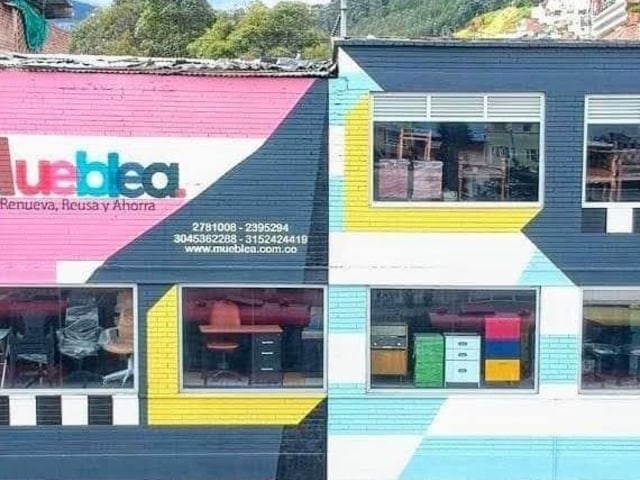The 20th of June is
World Refugee Day, a day to honour people who have been forced to flee their homes. This day is particularly important now as the global displacement and migration of people due to geopolitical conflict and climate change are reaching unprecedented levels. According to the UNHCR, 114 million people were forced to leave their homes by the end of 2023. And that number continues to grow. With so many refugees in the world, finding stable employment is a major challenge.
To aid in this effort,
IKEA Social Entrepreneurship partnered with NESsT in 2022 on the
Refugee Employment Initiative (REI), just one of
several initiatives IKEA has created and supported with a focus on refugees. The initiative provides financing and capacity-building support to enterprises in Poland and Romania who are working to empower refugees and migrants the tools and resources needed to rebuild their lives. Facilitating the fair recruitment of refugees, who often struggle to enter the job market, is key.
“In difficult times, equitable recruitment becomes something that employers want to do later,” says Mihai Cepoi, founder and CEO at Jobful, one of the participants of the REI. “What we observe is that whenever we encounter difficult times, there is a trend of protectionism, a trend of ‘let's keep our people, let's see how we take care of the people within the organisation – especially as we have layoffs,’ and vulnerable communities or diversity and inclusion is not even a topic anymore.”
Jobful is a social enterprise tech start-up in Romania with a mission to offer a more equitable and inclusive recruitment journey for refugees, youths and migrants. They want to empower people who are refugees or come from vulnerable communities on their journey to become valued assets to any organisation.
“From our experience, employers look at hiring migrants or refugees or people with disabilities, or other vulnerable groups, as charity. This is not only patronising (which it is) but it also shows a lack of understanding of the potential of a professional to impact an organisation,” says Mihai. “In my experience, people who have gone through struggles in different ways are a huge untapped definition of talent, of being super professional and impacting the organisation. We know that these are potentially spectacular talent.”
The Jobful platform was initially designed to help young professionals and recent graduates find employment, but its scope quickly expanded to address broader social challenges, including the integration of refugees into the workforce. To protect against biases in the hiring process, the Jobful platform makes the job profiles of potential employees anonymous. In that way, “people are choosing the best profile without knowing gender, age, vulnerability, disability or any other things that can enforce different biases and propel it over time,” says Mihai. The enterprise also does not use historical data to train artificial intelligence or build algorithms as this type of information often contains many biases.
“In February 2022, we launched the platform for refugees from Ukraine, and it was a huge success in that regard. When we started the engagement with the Refugee Employment Initiative we realised that we could do much more,” says Mihai. “At the end of the day, the main purpose of any startup is to grow, or it usually is. In our case, we redefined success. It means growing the business, but it also means impacting and making life better for vulnerable communities and for all professionals.”
Working with REI and individual mentors like Rumen Mihaylov, Insights Capability Leader at Inter IKEA Group, Jobful were able to quickly advance the development of their platform. “You see how development can actually work in a less constrained context, where purpose and culture are the main drivers as opposed to maybe processes and tools,” says Rumen.
“With the support from the REI, we were able to invest dedicated resources to the social impact area … For a start-up, taking care of the cash flow post pandemic, offered no room to invest in projects that have social impact as well. This is what the programme facilitated for us,” says Mihai. ”We managed to make the entire platform accessible for people with disabilities or people with sight challenges to be able to use our technology with their assistive devices. It's very sad to say, but only 3% of the Internet is for everyone. The other 97% is only for the people who have the fortune to see.”
By opening up new possibilities, connecting refugees with a broader network of employers who are committed to diversity and inclusion, Jobful is a good example of how NESsT and IKEA Social Entrepreneurship are together nurturing the growth of social enterprises. The initiative continues to invest in new social enterprises like Jobful who support refugees through career training, job placement, mental health, childcare and language classes. Read more about the
Refugee Employment Initiative and
NESsT.
